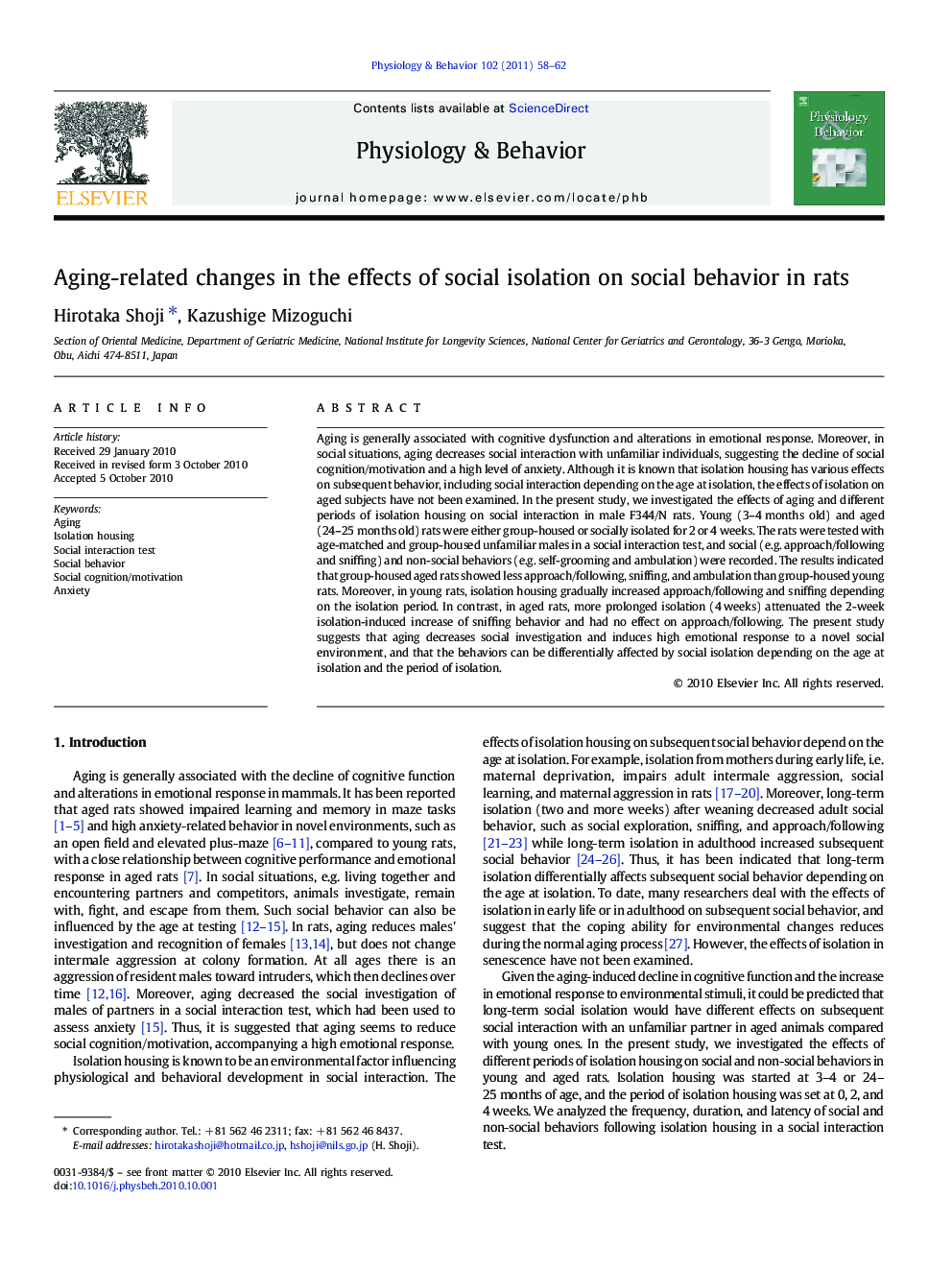| Article ID | Journal | Published Year | Pages | File Type |
|---|---|---|---|---|
| 2844873 | Physiology & Behavior | 2011 | 5 Pages |
Aging is generally associated with cognitive dysfunction and alterations in emotional response. Moreover, in social situations, aging decreases social interaction with unfamiliar individuals, suggesting the decline of social cognition/motivation and a high level of anxiety. Although it is known that isolation housing has various effects on subsequent behavior, including social interaction depending on the age at isolation, the effects of isolation on aged subjects have not been examined. In the present study, we investigated the effects of aging and different periods of isolation housing on social interaction in male F344/N rats. Young (3–4 months old) and aged (24–25 months old) rats were either group-housed or socially isolated for 2 or 4 weeks. The rats were tested with age-matched and group-housed unfamiliar males in a social interaction test, and social (e.g. approach/following and sniffing) and non-social behaviors (e.g. self-grooming and ambulation) were recorded. The results indicated that group-housed aged rats showed less approach/following, sniffing, and ambulation than group-housed young rats. Moreover, in young rats, isolation housing gradually increased approach/following and sniffing depending on the isolation period. In contrast, in aged rats, more prolonged isolation (4 weeks) attenuated the 2-week isolation-induced increase of sniffing behavior and had no effect on approach/following. The present study suggests that aging decreases social investigation and induces high emotional response to a novel social environment, and that the behaviors can be differentially affected by social isolation depending on the age at isolation and the period of isolation.
Research Highlights►The effects of social isolation on behavior seem to depend on the age at isolation. ►In young rats, isolation to four weeks time-dependently increases social behavior. ►In aged rats, isolation for two weeks increases social behavior. ►However, isolation for four weeks depresses the increase in aged rats. ►Social isolation affects social behavior differentially in young and aged rats.
